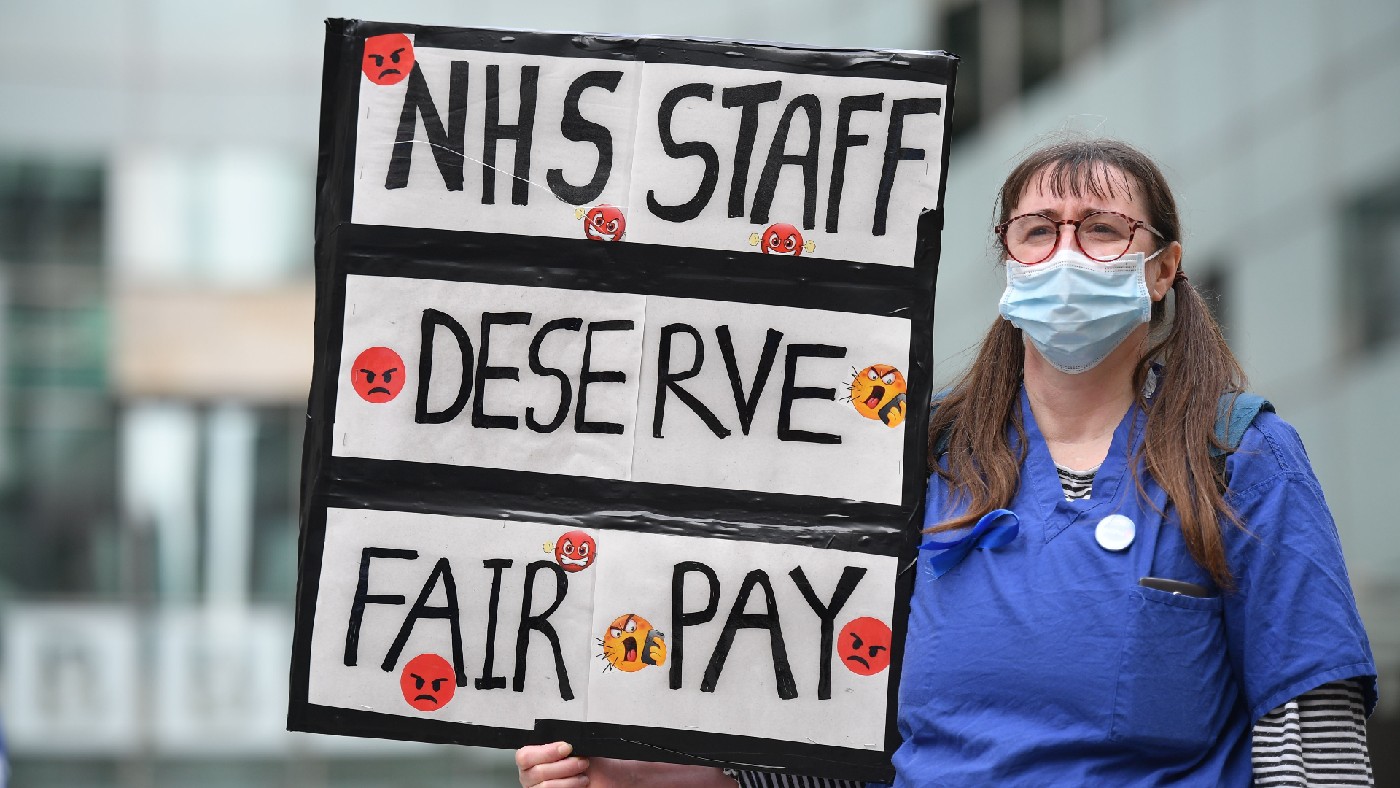Play all audios:
“We owe you more than words can say.” That’s what Prime Minister Boris Johnson told my colleagues on International Nurses’ Day last year, as he thanked us for our work fighting Covid-19,
said Rachel Ambrose in The Guardian. But “talk is cheap”: last week the Government rewarded nurses and other NHS staff in England with a paltry 3% pay rise (junior doctors were excluded).
Yes, it’s better than ministers’ “derisory” initial offer of 1%, but with the cost of living going up fast, it’s “a real-terms pay cut”. Do we really deserve that, in the middle of a
pandemic? Morale is “rock-bottom” among NHS staff, said Rachel Clarke, a palliative care doctor, in The Sunday Times. It’s no exaggeration to say that the service is quietly disintegrating.
We went into the pandemic with one of the lowest per capita rates of intensive care beds and doctors in Europe. Now we also have a shocking 5.3 million people on hospital waiting lists.
A&E departments are reporting their most intense workloads on record. “A world-class health service cannot be sustained by claps alone.” SUBSCRIBE TO THE WEEK Escape your echo chamber.
Get the facts behind the news, plus analysis from multiple perspectives. SUBSCRIBE & SAVE SIGN UP FOR THE WEEK'S FREE NEWSLETTERS From our morning news briefing to a weekly Good
News Newsletter, get the best of The Week delivered directly to your inbox. From our morning news briefing to a weekly Good News Newsletter, get the best of The Week delivered directly to
your inbox. Look, we know that NHS staff were “heroes in the pandemic”, said Tom Harwood in the Daily Mail. But so were supermarket workers and delivery drivers, and all the people who lost
their jobs had a tough time too. So why are only NHS staff getting “a costly wage increase”? Over the past three years, the starting salary for a newly qualified nurse has gone up more than
12%. The £1.5bn cost of the proposed new raise has to be met somehow. If the NHS’s budget is “cannibalised” to pay for it, that will mean less money for new drugs or more medics. If the cost
is met by raising taxes, then the people paying for it will include waiters, construction workers, and other private sector workers whose incomes, unlike those of NHS staff, fell sharply
during the pandemic. Even in normal times, the issue of nurses’ pay is “politically volatile”, said Sean O’Grady in The Independent. In the second year of a pandemic, you’d hope the
Government would have handled it more carefully. But now nurses are preparing strike action – and politically, this may offer “an escape route for the Prime Minister and his colleagues”.
Even a grateful public is unlikely to back the rise of 12%-15% more demanded by health unions for NHS staff. If nurses do take action, it will allow ministers to depict the unions as
“heartless” extremists. For now, “the court of public opinion” is on the nurses’ side. But if they ask for too much, they could “snatch defeat from the jaws of victory”. Explore More From
the magazine In Brief

